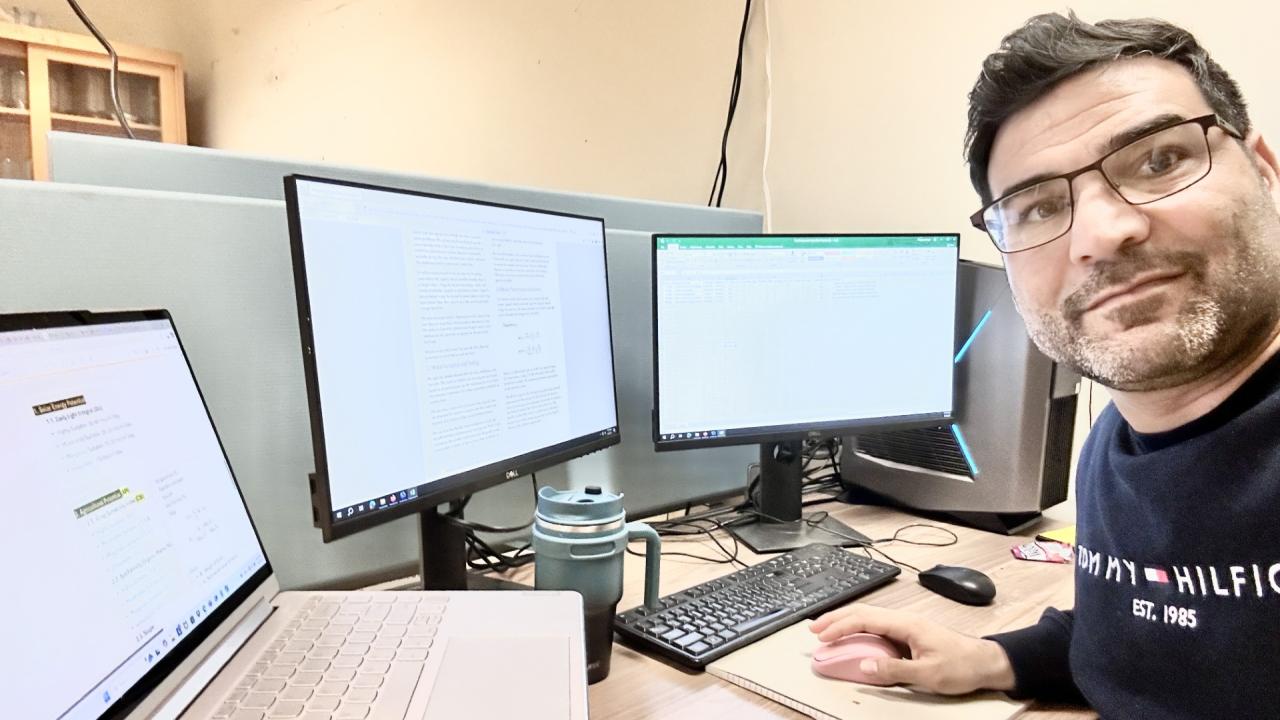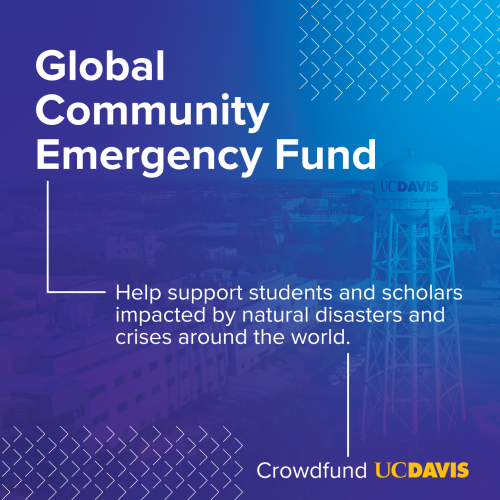
Threatened Scholar Offers Beacon of Knowledge for California’s Increasing Agriculture Challenges
The rise of the Taliban’s influence didn’t just displace the hopes and dreams of Afghanistan’s citizens but also jeopardized the knowledge and advancements of the academic community. Dr. Homayoon Ganji, a researcher from Afghanistan, was forced to leave or risk becoming a political target of the Taliban. Despite immense challenges, Dr. Ganji, a renowned expert in water resource engineering, has traveled the globe and advanced agricultural innovation while carrying the weight of a homeland he left in 2012 and has not returned to since.
In 2010, Dr. Ganji became Dean of the Badghis Agriculture Faculty at Herat University, charged with expanding the university’s reach to a new region between Herat and Badghis, welcoming nearly 50 students in its first year. By 2012, with support from the United States, Spain, and the Afghan government, he opened the university's doors to women – a rare and transformative milestone – enrolling 15 students in the inaugural year. At the same time, the Taliban was steadily growing in the area, and their resistance toward progressive education—particularly for women—was palpable.
Upon returning from a professional trip to the United States that same year, Dr. Ganji faced increasing pressures from the Taliban. "The situation was very bad. Every day, I was receiving messages, not only from the Governor but also from a local security intelligence agency, that I should not [leave the campus],” he recalls.
The risks escalated so dramatically that the United Nations chartered flights for Dr. Ganji to travel the mere 60 kilometers between his home and the university.
Faced with mounting threats while recognizing the need to further his expertise and ensure his family's safety, Dr. Ganji accepted funding from the Japanese International Agency of Research to pursue a master’s degree and PhD in Water Resource Engineering from Mie University. After his studies concluded and with the political crisis increasing in Afghanistan, Dr. Ganji and his wife relocated to Italy where Dr. Ganji joined the University of Milan and Pisa's faculty.
The fall of Kabul in August 2021 marked a turning point. Several years had passed since Dr. Ganji had seen his home country, and the Taliban’s resurgence extinguished any hope of return. Amid this uncertainty, a former colleague connected him with an opportunity in the United States.
Dr. Ganji identified UC Davis as the ideal institution to continue his research based on its globally recognized agriculture programs. He reached out to Associate Professor Majdi Abou Najm, a leading researcher in agrivoltaics, expressing a desire to contribute. Professor Abou Najm, in turn, collaborated with the Threatened Scholars Committee to bring Dr. Ganji to UC Davis.
The UC Davis Threatened Scholars Committee includes Beth Greenwood, School of Law Associate Dean and Director of the International Programs; Joanna Regulska, Global Affairs Vice Provost and Dean; Michael Lazzara, Global Affairs Associate Vice Provost; and Kim Haky, Global Affairs Senior Immigration Advisor. Through fundraising and cross-departmental collaboration, the committee creates opportunities for scholars like Dr. Ganji to continue their work in safety.
Thanks to the Threatened Scholars Committee, Dr. Ganji has been able to assist Professor Abou Najm and the College of Agricultural and Environmental Sciences with their research in agrivoltaics. Agrivoltaics is the practice of optimizing land use by growing crops beneath solar panels, offering solutions for food security, renewable energy challenges and water conservation. Dr. Ganji’s background focused on evapotranspiration—the process by which water transfers from the land and plants into the atmosphere. His background will help Professor Abou Najm’s team understand how conserving water will allow agriculture to flourish in low-light conditions. “It’s very new,” Dr. Ganji explains. “We have a unique opportunity to master this field and become a leading department.”
This research is vital for California’s Central Valley, where semi-arid conditions demand innovative solutions to balance food production, water management, and renewable energy.
Dr. Ganji’s story shines a light on why it’s so important to support international scholars who are forced out of their countries due to threats of harassment, jail, violence, and death. The Threatened Scholars Committee and the work of the cross-departmental collaboration between Global Affairs and UC Davis schools and departments provides a sanctuary for international scholars as they integrate into U.S. academia and contribute their skills and knowledge to UC Davis.

Global Community Emergency Fund
To support threatened scholars and other members of the UC Davis community who have an urgent and immediate financial need related to natural disasters, humanitarian crises, and other circumstances beyond their control, the Threatened Scholars Committee created the Global Community Emergency Fund. Funds support immediate and essential needs such as housing assistance, transportation, utilities, and other basic living expenses and/or educational expenses.
The UC Davis Global Community Emergency Fund is currently running a Crowdfund UC Davis campaign. The campaign runs until February 28 and aims to raise at least $5,000. For more information on this fund and how to support its efforts, contact Cora Cha, Global Affairs External Relations Manager (cycha@ucdavis.edu).